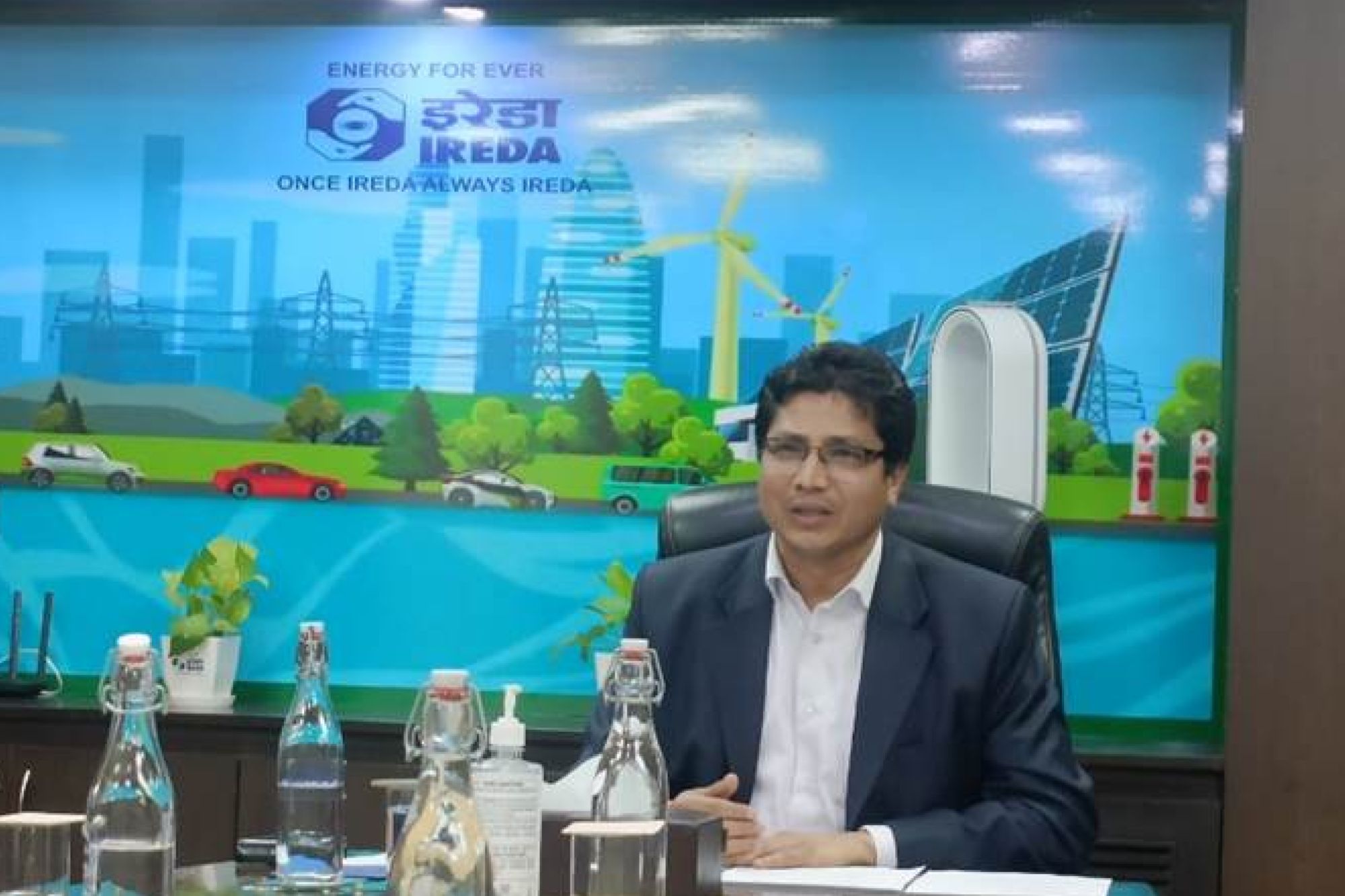India requires ₹30 lakh crores investment to meet NDC goals by 2030: IREDA
By EPR Magazine Editorial February 16, 2024 3:00 pm IST
By EPR Magazine Editorial February 16, 2024 3:00 pm IST

Investment is required in the manufacturing of capacity for Solar, Electrolysers, Wind & Battery; Transmission, Green Hydrogen, Solar, Hydro, Wind, and Waste to Energy sectors.
CMD of Indian Renewable Energy Development Agency (IREDA) Pradip Kumar Das has underscored the critical need for substantial investment to meet India’s Nationally Determined Contributions (NDC) goals by 2030, stating that the investment required is estimated to be ₹30 lakh crores over the period FY 2024-2030. “Investment is required in the manufacturing of capacity for Solar, Electrolysers, Wind & Battery; Transmission, Green Hydrogen, Solar, Hydro, Wind, and Waste to Energy sectors,” he said. He spoke of the investement while addresseing an international webinar organised by The World Bank, on the occasion of the release of the latest South Asia Development Update “Toward Faster, Cleaner Growth”, held recently.
Speaking about the significance of “PM Surya Ghar Muft Bijli Yojana”, the rooftop solar scheme launched by Prime Minister, Narendra Modi on 13th February 2024, the CMD said: “This visionary project, backed by an investment exceeding ₹ 75,000 crores, aims to solarise 1 crore households by providing up to 300 units of free electricity every month. This initiative is poised to elevate the Rooftop Solar sector to unprecedented heights in the country. The scheme will not only provide substantial benefits but also foster awareness about renewable energy among the people-at-large, contributing to India’s ambitious goal of achieving Net-Zero emissions by 2070 and Energy Independence by 2047.”
The CMD highlighted India’s exemplary role in worldwide renewable energy development, citing various government initiatives such as Renewable Purchase Obligations (RPO), the PM-KUSUM scheme, granting ‘Must-run’ status to RE assets, implementing the PLI scheme for Solar PV manufacturing, and permitting up to 100 percent FDI under the automatic route for renewable energy. He emphasised that as India aims to become the third-largest economy in the next three years and a developed country by 2047, there will be a significant energy demand to achieve energy security and independence. It is projected that approximately 90 percent of this demand will be met through renewable sources. Until sufficient energy storage for renewable energy is achieved, thermal energy will also be developed alongside. Additionally, the CMD praised IREDA’s nurturing role over the past 37 years in fostering the Renewable Energy sector in India.Speakers at the webinar included Special Representative to the UN and the WTO, World Bank’s Maria Dimitriadou; Chief Economist for the South Asia Region at the World Bank, Franziska Ohnsorge; Economist from the Prospects Group at the World Bank, Philip Kenworthy; and Green Technology and Research Manager at WIPO GREEN, Peter Oksen.
We use cookies to personalize your experience. By continuing to visit this website you agree to our Terms & Conditions, Privacy Policy and Cookie Policy.